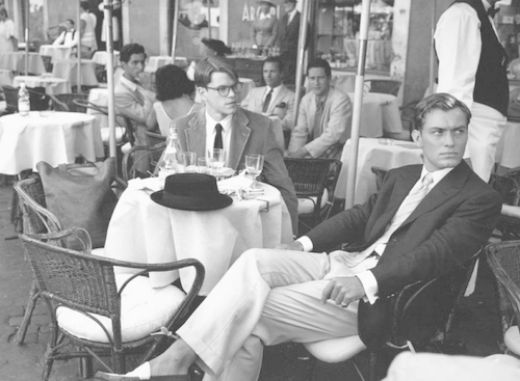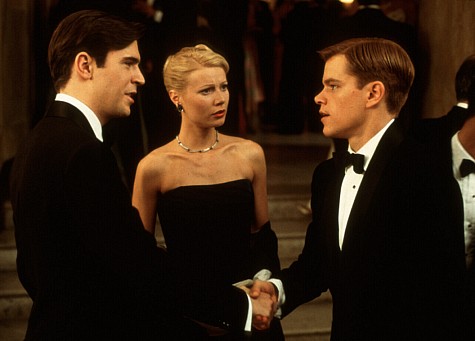This article was written for YES & NO Magazine’s special edition feature on Anthony Minghella, which appeared in Spring 2018.
Special people leave a trail behind them. Memories to be picked up and owned by others, turned over and treasured. Anthony was one of those people. Everybody has a piece of him. And it is correspondingly hard to find that one thing to define him, to communicate his essence through some singular experience or recollection.
But one of the most Anthony-evoking experiences for me is watching, or listening to, the scene in The Talented Mr Ripley in which they sing Tu Vuo Fa L’Americano. It feels like Anthony is there. He isn’t, I don’t think. Not lurking in the deep background of picture. Nor even adding (as he might easily have done) to the crowd singing voices in post-production. He isn’t there. And yet, in all the choices and flavours of that particularly delicious dish, he is there.
Firstly in its exuberance and joie de vivre. That was him. A day in which you sang with him felt like a hymn to life.
Secondly in the characters in the scene. The singer Fiorello’s easy, disarming way with his admirers. That was one side of Anthony. Jude Law’s sun-blessed Dickie. That was Ant too. The planets aligned for him. And above all, Matt Damon’s awkward Tom Ripley in the crowd, an admiring, detached observer of the on-stage high spirits – looking on, not belonging, not entitled; the writer’s detachment. That was Ant too. The boy who went to the smart hotels of our youth, but never through the front door – instead, delivering ice cream to the tradesmen’s entrance.
(He wore some of that blue-collar status even in success. When he took his first film, Truly, Madly, Deeply, to Cannes, the security guys wouldn’t let him in to his own screening. He protested that he was the director, and they laughed. “Sure!”)
Of course the importance of this scene in the movie is that Tom doesn’t remain at one remove. He is called forward, onto the stage to join in and sing with Fiorello and Dickie. This magical night in Naples changes the dynamic between Tom and Dickie. Dickie views him in a new light, and invites him into his life with Marge. Tom’s hard work in learning about jazz as a way of ingratiating himself with Dickie has paid off. He’s got himself an in.
That’s Anthony too. The effort behind success. The little guy on the outside. Waiting for his moment to sing.
If there is something of Anthony in all of the characters in the scene, and in the musicality of it, there is also something in the actual song, Tu Vuo Fa L’Americano. It’s a song which speaks, for me, of the feckless youth of I Vitelloni – one of Anthony’s favourite Fellini movies – and of our equivalent experiences on the Isle of Wight: colourless winters spent dreaming of glamour elsewhere. Empty beaches and pockets, and yet the determination to walk like a somebody. You want to be an American. You want to drink whiskey and soda. But the money for the Camel cigarettes comes from your Mum’s purse. It’s Ripley’s dream too, of course. Better to be a fake somebody than a real nobody.
Anthony did want to do the American thing. And he was aware of what a ridiculous, ersatz dream that was. Even when he was living it.
Which is not to say his life was phony. It was the opposite. His honesty could be arresting. Like the best of poets, his success was in his truth and integrity. His moments, faithfully and sometimes painfully reproduced, resonated. Maybe in the final analysis that’s why the Club Vesuvio scene in Ripley is so essentially him – because it is, of course, something which actually happened to him. He was dragged to a club one night in Capri with a gang of people in far more ebullient mood than him. He planned only to stay for a few moments and then retreat to his hotel room. But he was called to the stage – by a charming singer who turned out to be the famous Fiorello – and they ended up singing until four in the morning.
So when I see the Ripley scene, another one is conjured in my head, set in a club one night in Capri, starring my beautiful brother. I wasn’t even there, but I’ll pick up that moment from his trail, thank you, and turn it over, cherish it, make it mine.
For more memories of Anthony, and some extraordinary photos by Brigitte Lacombe, contact Yes & No Magazine for back issues.


